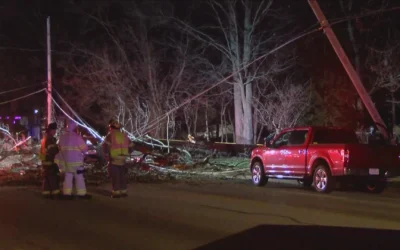Millennials and Gen Z Seek Wisdom from Their Predecessors: Lessons Learned from the 2008 Great Recession
The Great Recession of 2008 left a lasting impact on not just the U.S. economy but on the generational psyche of those who lived through it. As Millennials and Generation Z navigate their own financial challenges amidst the economic fallout from a global pandemic, they often turn to their Baby Boomer predecessors for guidance. What can be learned from the struggles faced by the older generation during that tumultuous time? This question is not merely academic; it is an urgent inquiry for young adults trying to make sense of their economic reality.
The Resilience of Baby Boomers
When asked how they managed to survive the Great Recession, Baby Boomers usually share a common sentiment: resilience. Many faced job losses, plummeting home values, and a volatile stock market, yet they learned to adapt. As one Baby Boomer noted, “We had no choice. It was either sink or swim, and we chose to swim.””>
This survival instinct was not without its costs; many Boomers had to practice severe frugality. They developed strategies that allowed them to save money during a time when every penny counted. From cutting unnecessary subscriptions to discovering the culinary art of home-cooked meals, their experiences reflect the harsh reality of economic instability.
Lessons in Money Management
One common piece of advice from Baby Boomers is the importance of developing a budget. When financial stability wavers, understanding where your money goes becomes crucial. Baby Boomers recount how meticulously tracking expenses and prioritizing essential purchases became their new normal. As they learned to live within their means, they found old habits were hard to break, and many discovered they could live without luxury items they once took for granted.
Regrets and Realizations
While Baby Boomers gained invaluable lessons from their endurance, many also experienced regrets. Some express a wish that they had diversified their investments sooner rather than relying heavily on real estate. For many, the housing market collapse made them realize the fragility of their financial foundations.
As one Boomer lamented, “I wish I hadn’t put so much faith in my house as an investment. It felt secure until it wasn’t. If I could go back, I would’ve advised myself to explore other avenues.””>
Strategies from Older Adults on Survival
When asked how they saved money, older adults shared their often-grueling methods. One common strategy involved cutting personal expenses to the bone. This included doing without cable television, relying on public libraries for internet access, and even re-evaluating grocery bills. They became adept at couponing and shopping sales, sometimes finding creative ways to turn leftovers into meals that stretched their dollars.
These strategies resonate with younger generations who are also discovering the realities of living through economic downturns. The overwhelming sentiment from Millennials and Gen Z is the realization that careful planning and resourcefulness yield long-term benefits, echoing the strategies their elders once had to employ.
The Emerging Financial Landscape
In today’s fast-paced financial landscape, Millennials and Gen Z face unique challenges such as student loan debt, unaffordable housing, and a gig economy that lacks stability. As they embrace technology, they also leverage digital banking and fintech apps for budgeting and investment advice. These tools allow them to manage their finances in ways that Baby Boomers could only dream of.
Community Support and Sharing of Knowledge
Young adults are increasingly turning to each other for insights into financial security, often sharing tips on social media platforms or community forums. There’s a shared understanding that financial literacy is vital in today’s economy. Millennials and Gen Z are unearthing personal finance lessons from their predecessors, adapting them to fit their own unique circumstances.
The Circle of Advice: Passing it Forward
As older generations share their stories and strategies, they also instill a sense of responsibility and empowerment in younger people. The conversations do not just involve survival tactics but also delve into building wealth. Baby Boomers encourage their younger counterparts to think long-term and not just focus on surviving but also on thriving financially.
“Don’t just save money; invest it wisely. Think beyond savings accounts and consider stocks, retirement accounts, and other forms of investment,” advises one financially savvy Boomer, who learned the hard way how critical these lessons are.
Conclusion: Weaving the Threads of Wisdom
The interplay between the experiences of Baby Boomers and the financial realities faced by Millennials and Gen Z fosters a unique opportunity for cross-generational learning. The struggles of the past can illuminate the path forward, providing insight that is valuable in any economic climate.
As younger generations navigate their financial futures, they can take comfort in knowing that they do not have to rely solely on their instincts and trial and error. The wisdom of those who have weathered storms before offers a guide, illuminating not only the potential pitfalls but also the pathways to resilience. By embracing the lessons from the Great Recession, they can build a financially stable future—one informed by the struggles and successes of those who came before them.
In times of economic strife, the dialogue between generations can serve as a lifeline, helping to create a more financially literate and resilient society where past mistakes can teach invaluable lessons for a brighter future.







